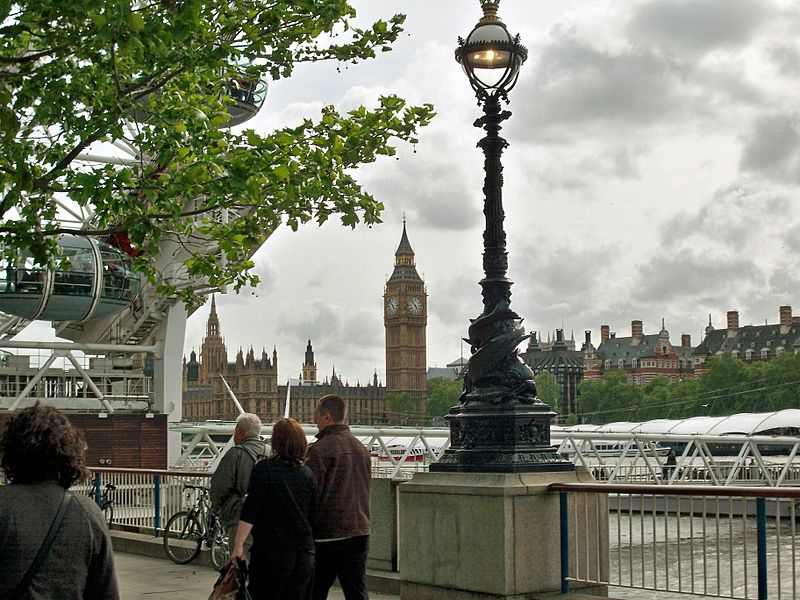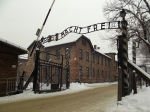
Tourism in London may not return to pre-pandemic levels until the middle of the decade, according to new analysis published today by the Mayor of London, Sadiq
Khan. It is estimated that it could take until at least 2025 for domestic and international visitor overnight numbers to return to the levels seen in 2019, with spend predicted to take until 2026 to surpass pre-pandemic levels.
Last year, the number of overnight stays made by tourists to the capital more than halved to 60.8 million with a spend of £3.8 billion, compared to 147.4 million overnight visits and spending of £18.8 billion in 2019.
Sadiq has urged the Government to come forward with a comprehensive package of measures which provide full business rates relief, extension of the VAT relief scheme, and a substantial increase in direct grant funding to support hospitality, night time and cultural venues who were counting on a rise in income over the Christmas period to help see them through the lean winter months.
Further data from across the industry highlight just how devastating the spread of the Omicron variant was on Christmas trade:
- UK Hospitality say that food and drink sales across London were down significantly in the weeks before Christmas with up to a 65 per cent decrease on 2019 in late December.1
- Data from the New West End Company revealed footfall in the West End was down 33 per cent in December 2021 compared with December 2019, and in the first week of 2022 footfall was down 55 per cent compared with 2019. Footfall dropped significantly during the morning commute hours following the Government introducing Plan B restrictions on 8th December 2021.2
- Night Time Industries Association found that, on average, night time economy venues in the capital including pubs, bars, restaurants, nightclubs and other venues, each lost on average £46,000 due to cancellations and lost sales during the festive period. More than half of all businesses required to introduce Covid Certification for entry to their premises reported a drop in footfall of more than 40 per cent.3
- Figures from the Society of London Theatre show that attendances fell dramatically in the second half of the month, down 63 percent with revenue down 60 per cent compared to 2019. The first weeks of 2022 have seen performance numbers slowly rise.4
The Mayor is doing all that he can to support London’s businesses and venues that rely on tourism. Last year, his Let’s Do London domestic tourism campaign brought in an additional £70 million in spending and 280,000 visitors to the capital. Prior to the onset of the Omicron variant and the Covid threat level increasing, Let’s Do London helped drive an increase of 33 per cent in weekday daytime footfall and an increase of 43 per cent in weekend evening footfall between May to November. As part of his plans to encourage international visitors back into London, Sadiq, London & Partners and the wider tourism industry will launch an international tourism campaign in Spring 2022.
However, today’s figures demonstrate that the measures and grants announced so far by Government are only a sticking-plaster solution. The support package for those most affected by Omicron recently announced by the Chancellor equates to just £6,000 per business and does not go nearly far enough towards providing the level of support London’s world-renowned retail, hospitality, nightlife and cultural sectors need. For example, closing a West End show for a week can cost over £250,000 and the Night Time Industries Association (NTIA) found an average loss in takings of £46,000 per venue in the run-up to Christmas. In addition to this, there has been no support announced for freelancers and gig economy workers, who continue to suffer a major loss of income.
Tourism plays a vital part in London’s social and economic life - it supports as many as one in seven jobs in the capital and contributes almost 12 per cent of London’s GDP. London is the third biggest driver for people visiting the UK and accounted for 53 per cent of the UK’s international visits in 2019. London visitors go on to spend over £640 million in local economies outside of the capital and prior to the pandemic 15 per cent of overseas visitors to London came as part of wider trip to the UK.
The Mayor is helping hundreds of small companies through the Pay It Forward London crowdfunding platform, through which Londoners can support their favourite local and independent businesses struggling with the challenges of Covid-19. Through his Back to Business Fund he is match-funding £1.2 million of the £2.5 million raised overall through the schemes.
Since the start of the pandemic, his London Business Hub’s Covid-19 Recovery Grants have provided more than £1.4m of direct grants to help almost 1,500 firms adapt their business in response to the pandemic. A further £2.3 million was allocated to his Culture at Risk Business Support Fund to help some of London's most imperilled creative and night time businesses, such as independent cinemas and music venues.
The Mayor of London, Sadiq Khan, said: “The data I am releasing today really underlines just how devastating the drop in tourism in the capital has been - and will continue to be - for years to come.
“It is obvious that many of London’s hospitality, retail, cultural and leisure businesses that rely heavily on tourists will be fighting for their survival for months to come, meaning many thousands of jobs are still at risk.
“I have committed to doing everything I can to support London’s economic recovery now, and in the years to come. But the stark reality is that these sectors won’t be able to sustain pre-pandemic levels of employment until tourists return in significant numbers.
“That’s why I am urging Government to take meaningful action to prevent widespread job losses and the financial hardship this will bring for Londoners, many of whom are already struggling to make ends meet.”
Chief Executive of UK Hospitality, Kate Nicholls, said: “Omicron came at the worst time for hospitality and tourism, just prior to the crucial festive period, the revenue from which, in normal times, sustains many businesses during the quiet months of the new year. Diminished cash reserves have had been further plundered to keep venues afloat. Omicron also knocked back consumer confidence, which was starting to firm up in the autumn, setting back recovery by months, and was compounded by the rise in the cost of living witnessed since the variant hit us.
“London’s recovery will drive national recovery, so it’s vital to get domestic and tourist footfall up. However, that won’t happen immediately, so we need the Government to act, to secure the futures of businesses that will drive recovery in the capital and nationally. A retention of the 12.5% VAT rate would help to keep consumer prices low, rather than risk an additional inflationary pressure in April. Furthermore, business rates are higher in London than anywhere else, so an extension of rates relief would also go a long way to boosting the capital’s hospitality and tourism.”
Chief Executive at New West End Company, Jace Tyrrell, said: “To relieve central London businesses of the burden of extortionate costs as they recover from the ongoing impacts of the pandemic, Government must provide more inclusive business rates relief and ensure that all business taxes are fitting with the current economy. One in eight Londoners rely on the West End economy for employment.”
“We also urge Government to focus on ensuring that London, particularly our two key International Centres, are in the best position to turbo charge back our multi-billion pound tourism economy. Enhancing the Visa scheme and extending Sunday Trading hours in the International Centres, will ensure we remain globally competitive. Without such measures we cannot fairly compete against our European counterparts, and already suffering businesses are put at a further disadvantage.”
Chief Executive of Night Time Industries Association, Michael Kill, said: “With the devastating losses in hospitality and night time economy businesses over the festive period, and the subsequent effects of limited cash flow being felt across the capital, our sector is in an extremely fragile state. Experts believe it will take several years for hospitality and night time economy to recover, but what is most important today is for the Government to set aside their political agenda and start to put people and businesses at the sharpest end of the pandemic, first.” Photo by Joseph Plotz, Wikimedia commons.


































